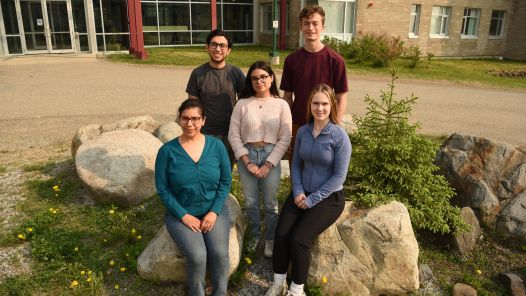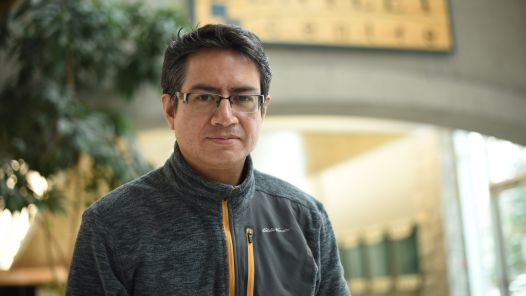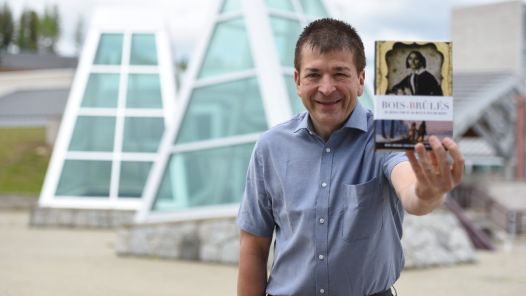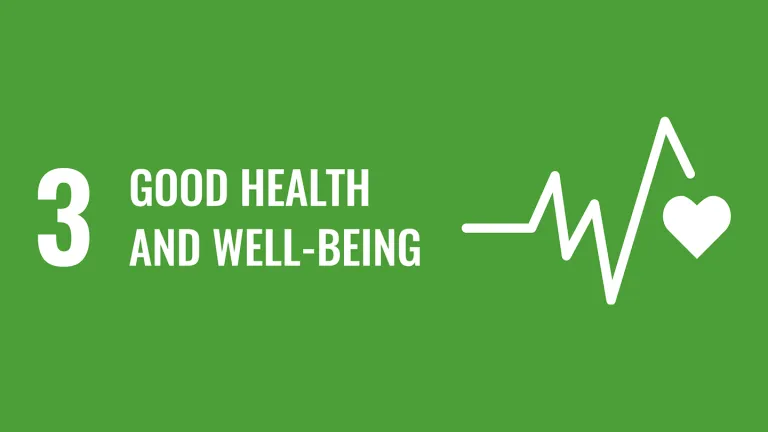
"Ensure healthy lives and promote well-being for all at all ages."
Healthy individuals–physically, mentally, and socially–are key to any sustainable community, and the University takes pride in the work it is doing to ensure that students, staff, and faculty are healthy. This includes free access to the Northern Sports Centre for staff and a nominal rate for students, to ensuring on-site counselling, to medical benefits plans, to providing engaging social events such as potluck lunches and dinners through the First Nations Centre. Our research expands across a number of areas such as indigenous health (the Northern Collaborative Centre for Indigenous Health – national, collaboration), healthy aging in place (the Centre for Technology Adoption for Aging in the North - local), the UNBC Health Research Institute (local) and the Northern Medical Program along with Physical and Occupational Therapy education (regional).
Statistics
For Academic Year 2024
| SDG | Metric | Value |
|---|---|---|
| SDG3 | Proportion of graduates in health professions | 25.7% |
| Number of graduates | 838 | |
| Number of graduates in health professions | 215 |
Research
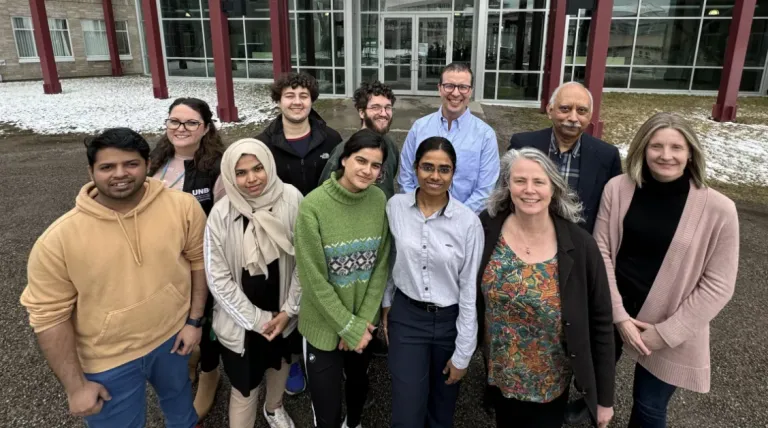
The UNBC Health Research Institute
The UNBC Health Research Institute (HRI) brings together researchers, students, and community partners to improve health outcomes and address inequities across northern and Indigenous communities. Through its focus on biomedical, clinical, social, and environmental determinants of health, the HRI directly supports UN Sustainable Development Goal 3: Good Health and Well-being by advancing research, innovation, and partnerships that promote healthier lives for all.
HRI Connect
HRI Connect is a recently launched online platform developed by UNBC’s Health Research Institute to link researchers, students, and community partners across northern B.C., fostering collaboration and knowledge sharing in health research.
Centre for Technology Adoption for Aging in the North (CTAAN)
The Centre for Technology Adoption for Aging in the North (CTAAN) led by Dr. Shannon Freeman and Dr. Richard McAloney helps improve the health and well-being of older adults by testing, adapting, and promoting innovative technologies that support aging in place—advancing SDG 3 through enhanced independence, safety, and quality of life for northern and rural communities.
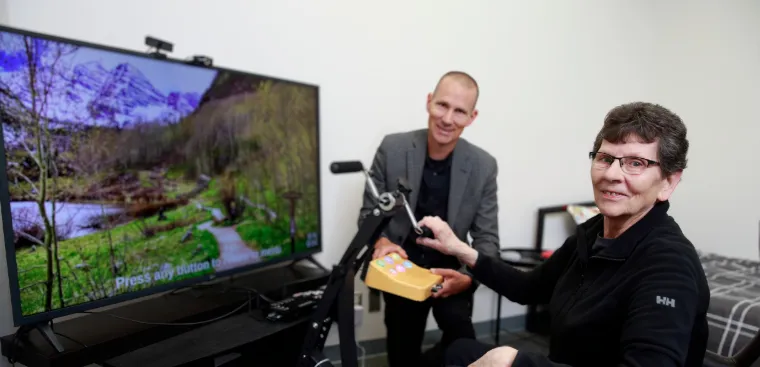
Northern Feminist Institute for Research and Evaluation (Northern FIRE)
The Northern Feminist Institute for Research & Evaluation (Northern FIRE) at UNBC supports SDG 3: Good Health and Well-Being by addressing health inequities faced by women in northern and remote regions. Through gender-informed, community-based research, Northern FIRE examines how geography, culture, and systemic barriers impact women’s access to healthcare and overall well-being. By highlighting issues such as gender-based violence, limited service access, and structural determinants of health, the institute advances equitable health outcomes and contributes to more inclusive, effective health systems across northern communities.
Northern Centre for Clinical Research
The Northern Centre for Clinical Research (NCCR) is a collaborative initiative between the University of British Columbia (UBC) Faculty of Medicine, the University of Northern British Columbia (UNBC), and Northern Health (NH). It conducts clinical trials and health studies in partnership with Indigenous and northern communities, advancing SDG 3, Good Health and Well-being by expanding access to innovative medical research and improving healthcare outcomes across northern and rural regions.
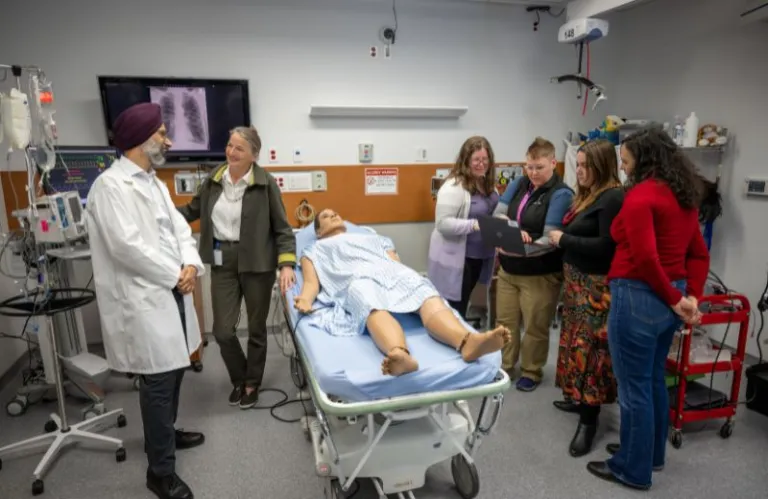
The Northern Biobank Initiative
The Northern Biobank Initiative (NBI) Phase 2 is the first community-hospital-based biobank in British Columbia, including collections like the Northern Breast Cancer Biobank. In partnership with northern First Nations communities and the First Nations Health Authority, it is developing a culturally informed governance model for a First Nations biobank. Led by UNBC and funded by Genome BC and regional health authorities, the NBI builds research capacity and equity, advancing SDG 3 by supporting health research for northern and Indigenous populations.
The Health Arts Research Centre (HARC)
The Health Arts Research Centre (HARC), based at the University of Northern British Columbia (UNBC), explores how creative expression—such as storytelling, visual arts, and poetry—can enhance health and well-being. By integrating arts into healthcare, HARC addresses health inequities in northern and Indigenous communities, aligning with SDG 3. Their initiatives include the H.E.A.L. Healthcare Project, which offers open-access learning resources to challenge healthcare biases and promote culturally safe practices, and the First Nations Community Education Program, which provides medical students with experiential learning opportunities focused on Indigenous well-being. These efforts foster innovative, culturally grounded approaches to health, aiming to reduce disparities and improve outcomes.
National Collaborating Centre for Indigenous Health (NCCIH)
The National Collaborating Centre for Indigenous Health (NCCIH), hosted at the University of Northern British Columbia, is dedicated to strengthening public health systems and supporting health equity for First Nations, Inuit, and Métis peoples in Canada. Through knowledge translation and exchange, NCCIH addresses health disparities rooted in colonization and marginalization, aligning with SDG 3 by promoting culturally safe practices, self-determination, and holistic approaches to health.
UNBC Medical Clinic
The UNBC Medical Clinic is located in room 5-161 of the Library Building on the Prince George campus. The clinic is staffed by a team of medical professionals who collaborate to offer a wide range of health services, aiming to coordinate and support students' healthcare needs while they study at UNBC. The UNBC Medical Clinic is available to registered UNBC students during their time in Prince George.
Charles Jago Northern Sports Centre
The Charles Jago Northern Sport Centre at the University of Northern British Columbia supports SDG 3: Good Health and Well-Being by promoting physical activity, rehabilitation, and overall wellness for people of all ages and abilities. As a premier four-season facility, it offers a wide range of fitness opportunities—from group exercise classes and personal training to the only indoor running track in northern B.C.—helping reduce health risks associated with inactivity and supporting both physical and mental well-being.
The Northern Sport Centre also proudly hosts three health and wellness service providers, including Accelerated Sport & Spine Physiotherapy, which empowers clients to build strength, recover effectively, and maintain active, healthy lifestyles. Providing advanced services such as inter-muscular stimulation (IMS), drug testing, and pre-employment screenings, and serving as the official physiotherapy clinic of the UNBC Timberwolves, Accelerated Sport & Spine Physiotherapy strengthens the centre’s role as a community hub for accessible, holistic health and well-being.
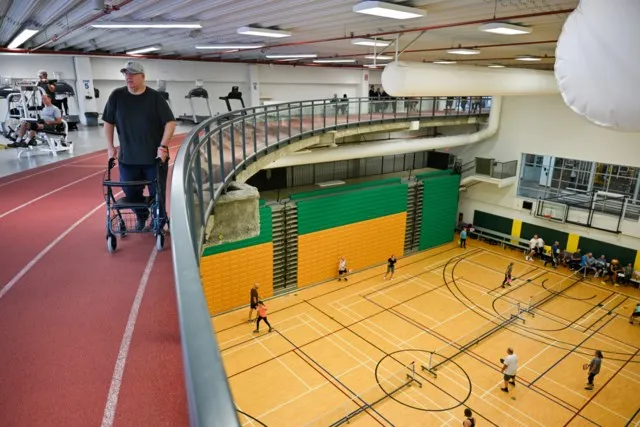
UNBC Counselling Services
The Counselling team is here to help UNBC students meet their goals as they journey through their academic life. Please visit the following website to find out how to connect with them.
Employee Well-being
UNBC Employee Well-being strives to facilitate safe and equitable participation in the workplace for UNBC employees, including those with disabilities and/or medical conditions. Their role is to support employees with workplace accommodations, medical leaves, return-to-work planning, and contribute to larger organizational wellness initiatives.
Access Resource Centre
The Access Resource Centre (ARC) at the University of Northern British Columbia (UNBC) provides services to students with documented disabilities, including chronic health issues, hearing and visual impairments, learning disabilities, mental health and neurological disabilities, mobility and other physical disabilities, and temporary impairments related to significant illness or injury. ARC offers academic accommodations, assistive technology coordination, and support with funding opportunities, ensuring equitable access to education and fostering an inclusive campus environment. By reducing physical, attitudinal, and systemic barriers, ARC contributes to SDG 3 by promoting mental and physical health through accessible education.
UNBC's Smoke and Vape-free Places Policy
The University of Northern British Columbia’s Smoke and Vape-Free Places Policy supports SDG 3: Good Health and Well-Being by promoting a smoke-free environment that protects the health of students, staff, and visitors. Under this policy, all smoking is prohibited in buildings, enclosed spaces, vehicles, and on all university-owned, managed, or leased property, with exceptions only for designated smoking locations identified on campus maps. By restricting smoking to specific areas and providing cessation resources, UNBC reduces exposure to harmful tobacco and vaping products, prevents respiratory and cardiovascular illnesses, and supports a healthier campus community.
Sustainability in action at UNBC
Upcoming events
There are currently no events to display.
Explore the SDGs
UNBC is committed to advancing the United Nations Sustainable Development Goals (SDG) through a wide range of initiatives aimed at fostering sustainability, inclusivity, and global responsibility.
